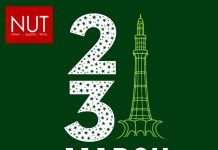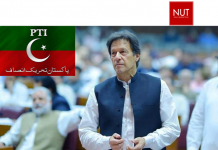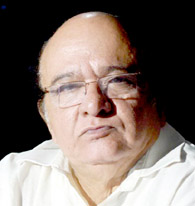‘Tis all a chequer-board of nights and days
Where Destiny with men for pieces plays
Hither and thither moves, and mates and slays
And one by one back in the closet lays.’
— Omar Khayyam
DHARNA 2016 has petered out in a somewhat unexpected manner, although not wholly unpredictably, with less harm being done to the country than what one had feared. The dharna offers quite a few lessons that must not be ignored.
Once again, the dharna exposed the poverty of the country’s political leaders and their inability to resolve matters without precipitating a showdown between state power and street force. Their failure to agree on a mechanism to settle the Panama Papers affair led to a dangerous confrontation, and the way out now found through the Supreme Court’s intervention had always been available.
The dharna was a high-cost affair; that both sides have lost is quite obvious.
More than anything else what has been exposed is the mainstream political parties’ folly of treating each other as worst enemies and thus rendering themselves vulnerable to extra-political intervention that may not be as benign as the Supreme Court’s bailout plan on the present occasion. Their inability to learn from history amazes even the most poorly informed villager.
The government-PTI contest has ended in a tie; the government can claim that it has foiled the PTI’s bid to seize Islamabad and has protected the capital, while the PTI can insist it has pushed the process of the prime minister’s accountability further — if the people can be convinced that the court would not have arrived at Tuesday’s decision without the dharna.
That both sides have lost is quite obvious. The government’s total reliance on force betrayed the political and moral weakness of its case. The PTI faces the task of justifying before its followers what they are likely to consider a retreat. Imran Khan has courted the risk of undermining his strategy, based on mass mobilisation, by using it too often and always inconclusively. He will also face criticism for his habit of taking his allies for granted; Dr Tahirul Qadri, Pervaiz Elahi and Sheikh Rasheed are all complaining that they were not consulted before the dharna was called off.
The PTI can, however, argue that by putting the cauldron on the stove it energised all political parties — from the Jamaat-i-Islami and the JUI-F to the PPP. All of these parties became active and the PPP has had the satisfaction of seeing the denouement correspond to its proposals.
It is also necessary to answer the following question: was the dharna unavoidable? It was easy to counsel Imran Khan against taking a maximal and rigid stand on his demand for the prime minister’s ouster if he did not agree to accountability on the Panama leaks, despite other opposition parties’ refusal to accept this proposition.
After all, they too wanted an effective probe into the matter. But it was not easy to ignore the government’s refusal to satisfy the people’s minimum demands for reasonably fair governance. The opposition can be asked not to make impossible or extra-democratic demands upon an elected government, but it is also the government’s duty not to destroy the people’s ability to defend it.
The dharna was a high-cost affair. The PTI, its financiers, including the KP government and ordinary members, must have spent a lot of money on mobilising their supporters and looking after them. The government probably spent much more on meeting the challenge. The loss to the economy caused by the disruption of normal life not only in Islamabad but across large parts of the country is extra. How can this huge expenditure on a dubious enterprise be justified? Besides, this will add to the grievance against Imran Khan that he is making democratic political activity by parties with fewer resources more and more difficult. And this goes against the interest of democratic consolidation.
Although the government can offer the excuse of acting under great pressure and provocation, its deficiencies in the area of crowd management remain a matter of serious concern. Blocking of roads and thoroughfares may be justified in an emergency but the fact that such tactics affect the citizens’ fundamental right to public passage cannot be glossed over. There should be some way of at least properly warning the people of road blocks so that accidents like the death of a senior army officer near Hazro or the plight of patients wanting to reach hospitals can be avoided.
The way some women protesters were treated showed that the security personnel need further training in ways of respecting the dignity of men and women, which is supposed to be inviolable under Article 14 of the Constitution.
The government must also realise that its policy of arresting and detaining citizens to prevent them from joining a peaceful assembly is in violation of human rights. It amounts to perpetuation of the colonial administration’s policy of treating any form of dissent as a design to spread disaffection against a government established by law. Nobody should be deprived of liberty unless he is found to be committing a crime or is manifestly about to do so.
The confrontation between the federal interior ministry and the KP government has given a new turn to the federation’s relations with its units (provinces). The capital will from now on remain vulnerable to threats from a KP-armed lashkar backed by any provincial government that is hostile to the federation or whose demands the latter cannot for any reason concede. And it will be more vulnerable to similar threats from Punjab, which is perhaps in a better position to encircle Islamabad than KP.
The significant beneficiaries — unintended perhaps — of dharna 2016 should include the militant extremists who are threatening to capture the state of Pakistan. There is no knowing how many militants, who have been openly pampered by the KP administration, were able to infiltrate the PTI caravan that was marching on Islamabad. They had a good, all-paid experience of joining a rehearsal for a possible assault on the capital. Dangerous indeed.






